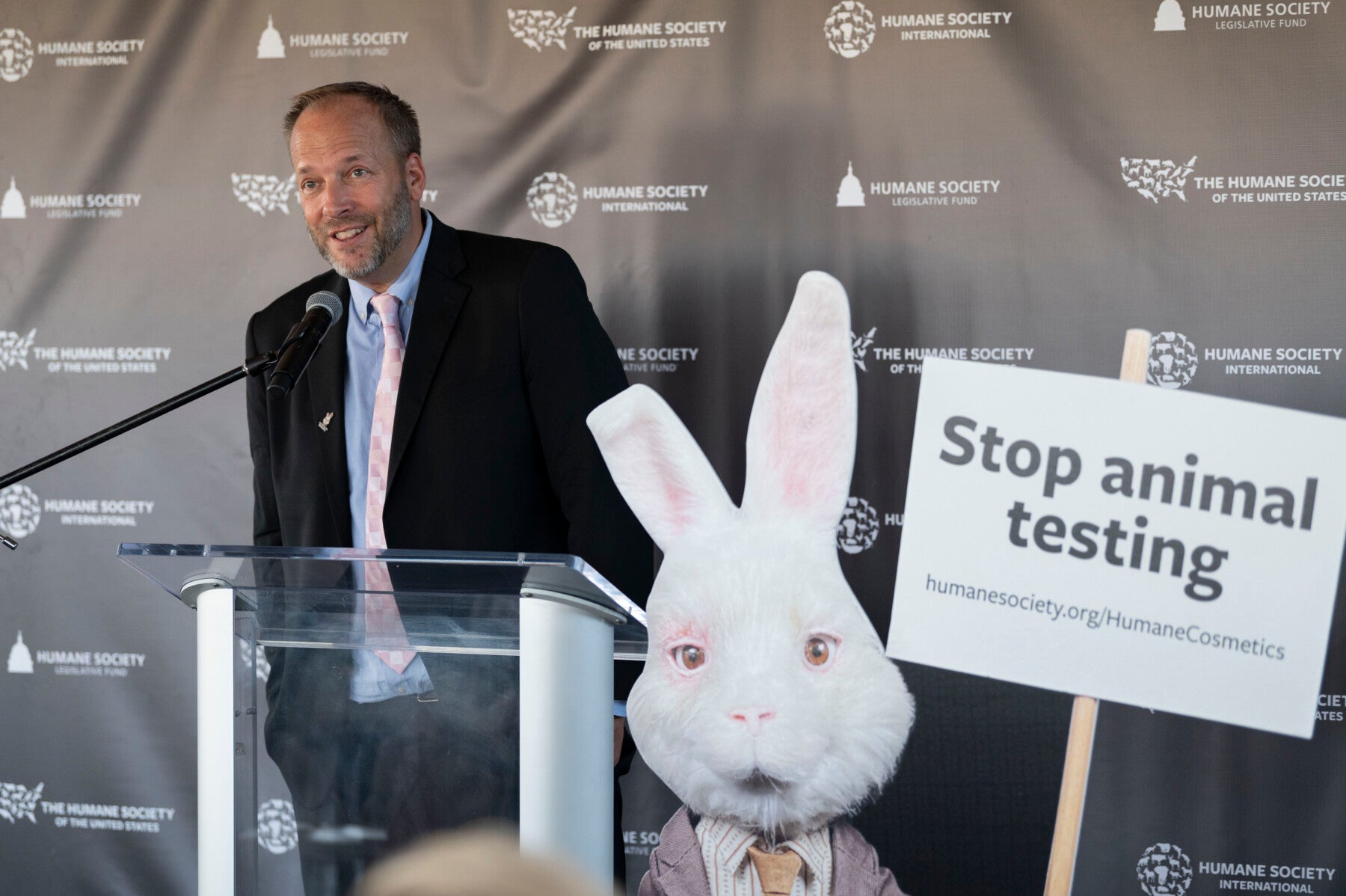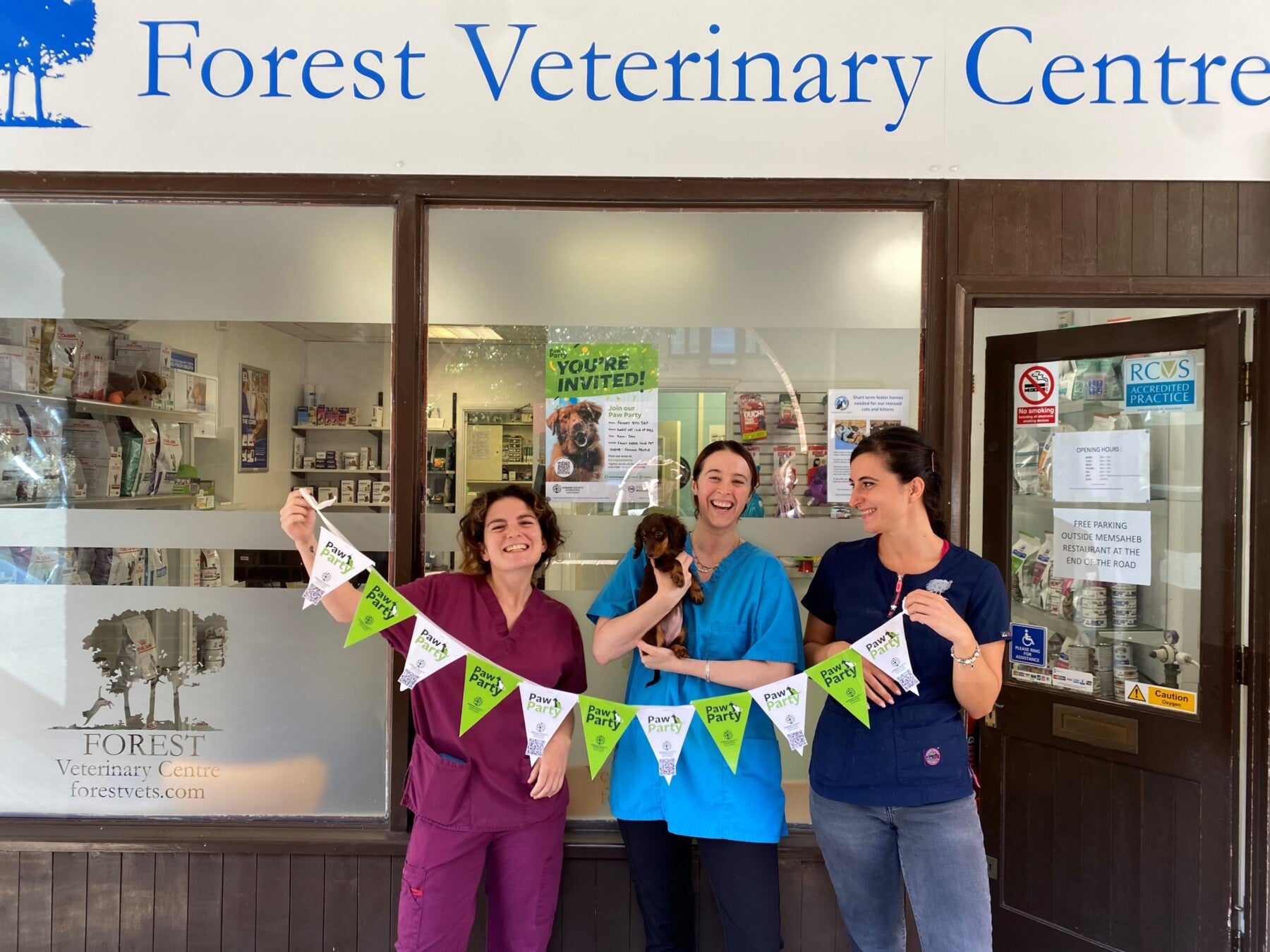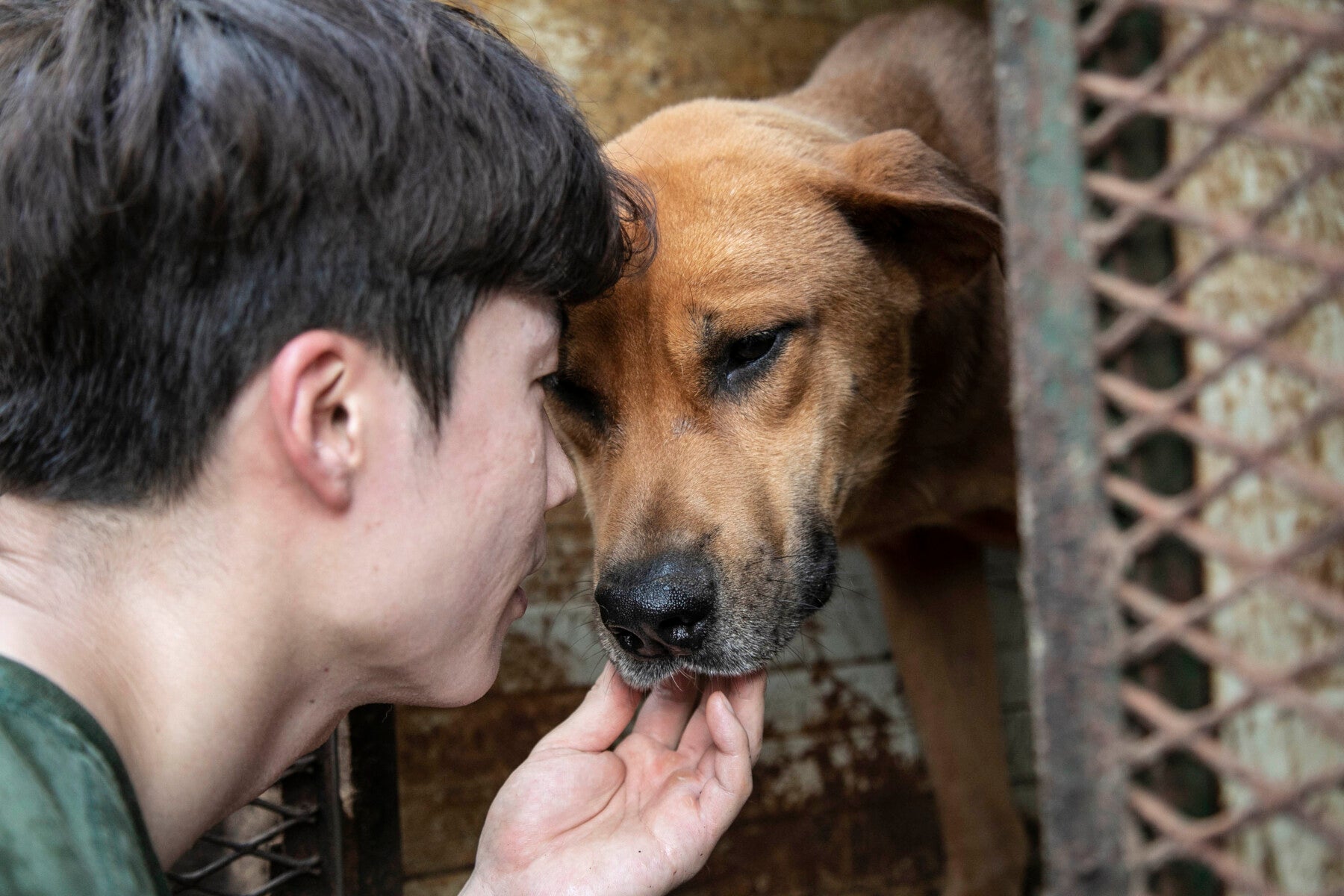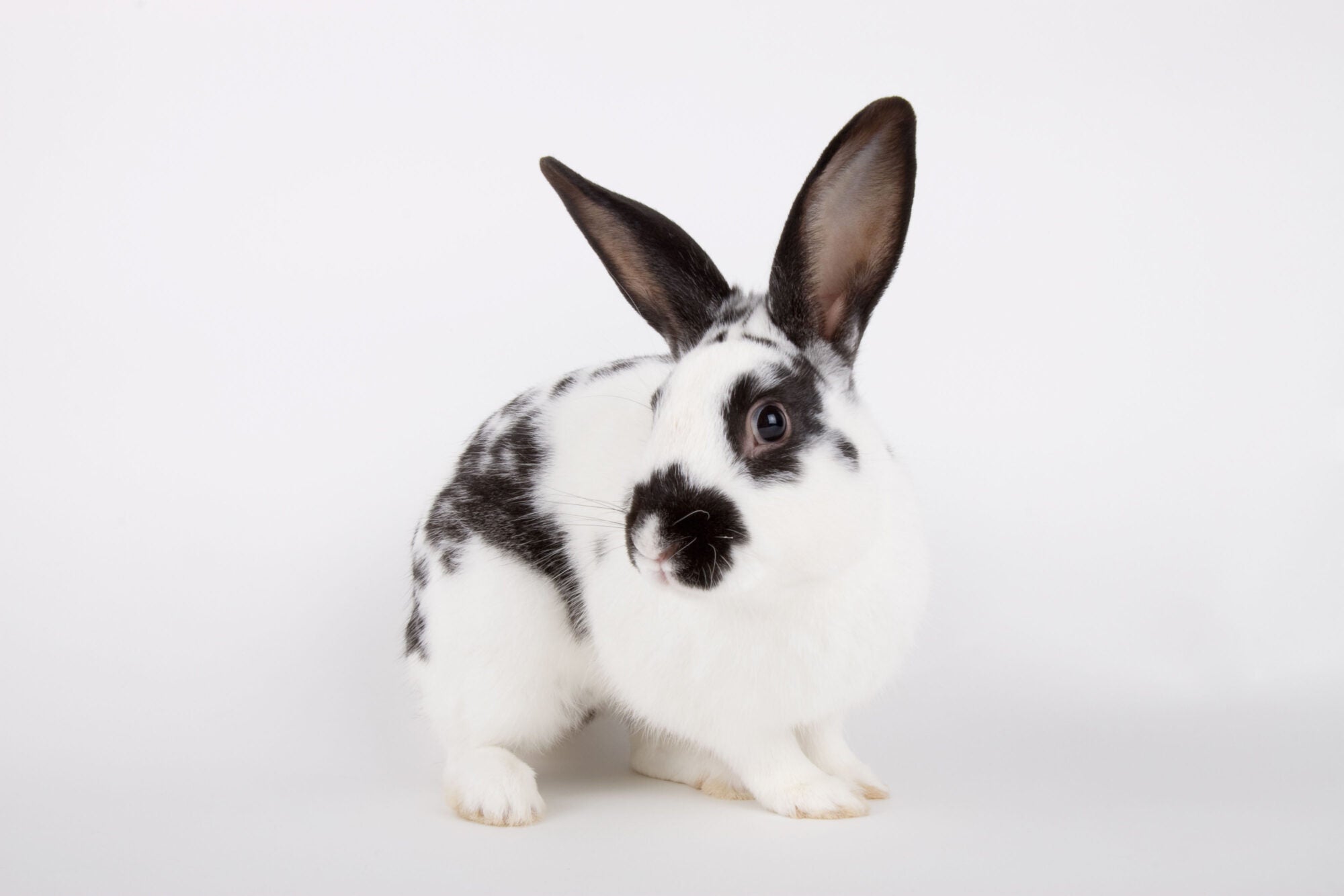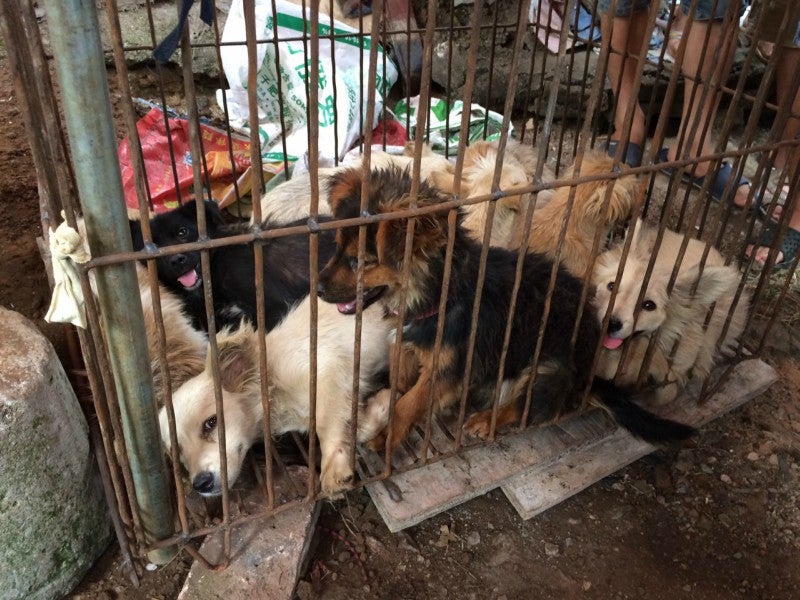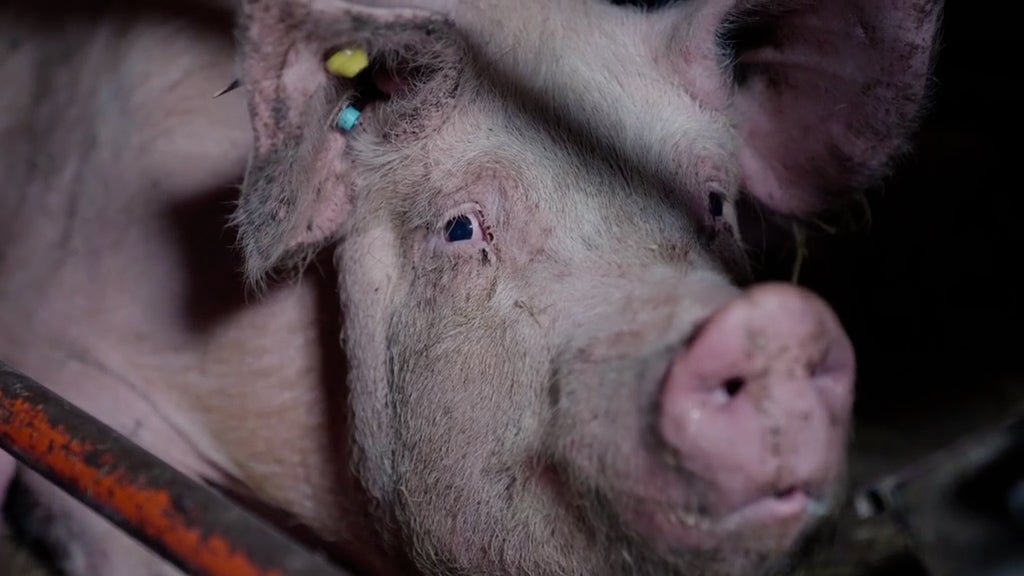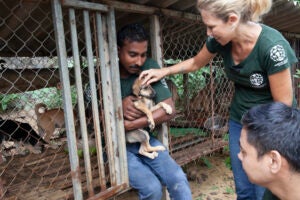
Forty-four dogs, including 19 puppies just days old, have been rescued from a dog meat fattening facility and slaughterhouse in Thai Nguyen, Viet Nam, after the owner had a change of heart and shut his shop for good. Mr Hung had bought, sold and slaughtered up to 20,000 dogs for the meat trade over the past seven years, but said that killing the animals weighed heavily on his conscience and he was relieved when animal charity Humane Society International offered him a way out as part of its Models for Change program. Mr Hung plans to open an agricultural store for local community crop farming.
HSI’s rescue team assembled from Viet Nam, Indonesia and India to remove the 44 dogs from Mr Hung’s facility and transport them to custom-made sheltering at Thai Nguyen University of Agriculture and Forestry where they were vaccinated against rabies and will receive medical care and rehabilitation before being made available for local adoption.
Most of the estimated five million dogs killed for meat annually in Viet Nam are stolen pets or strays snatched from the streets using poison bait, painful taser guns, pincers or ropes, or imported from surrounding countries such as Cambodia. However, the majority of Mr Hung’s dogs were sold to him by rural families who breed extra puppies at home to supplement their main income.
Traders typically go village to village by motorbike or truck to collect puppies from rural communities. The young dogs are tightly packed into small cages and driven for hours to facilities such as Mr Hung’s for fattening up, many enduring dehydration, suffocation, heatstroke and even death on the journey.
Prior to the closure with HSI, traders delivered around 50 puppies every one or two months to Mr Hung’s facility, where they were kept in filthy raised cages without veterinary care and fattened up for several weeks or months to reach a suitable slaughter weight to be sold as thịt chó (dog meat).
HSI’s research in other parts of Viet Nam uncovered the cruel practice of force-feeding dogs at some fattening facilities by forcing a tube down their throats and pouring rice directly into their stomachs. While Mr Hung claims never to have conducted force feeding, he is aware of the practice. As well as selling the dogs to local slaughterhouses and restaurants, Mr Hung also killed one or two dogs every day with a knife to the jugular or heart, in full view of other dogs. It was a cycle of suffering and brutality that Mr Hung said finally broke his heart.
Mr Hung told HSI’s Viet Nam team: “I looked into their pleading eyes and saw their tails nervously wagging as I approached, and each time it got harder to do. They came to me as happy little puppies so full of life, but soon became traumatized and afraid. It just broke my heart in the end. Dogs are so loyal and friendly, selling or killing them felt like a betrayal that weighed heavily on my conscience. When I heard that HSI’s Models for Change program had helped another trader in Thai Nguyen close his dog meat slaughterhouse and restaurant last year, I was relieved to know there was a way for me to start my life over without having to kill animals for a living. I’m excited for my new business and to know that all my dogs will have the happy life they deserve with families who will look after them.”
As well as tackling the extreme animal cruelty inherent in the trade of dogs for human consumption, HSI’s program also helps crack down on the spread of the deadly rabies virus across Viet Nam. Rabies kills more than 70 people in Viet Nam each year, according to the World Health Organization, with most cases caused by dog bites and verified cases linked to dog slaughter and consumption. A high incidence of rabies-positive dogs has been documented in slaughterhouses in the capital city, Hanoi. Whether trafficked from neighboring countries, caught and driven hundreds of miles across Viet Nam or sold for slaughter by local households, the dog meat trade involves the mass movement and slaughter of dogs of unknown disease or vaccination status and as such jeopardizes efforts by officials to control the spread of the rabies.
Phuong Tham, Humane Society International’s Viet Nam country director, said: “The dog meat trade is a cruel and dangerous business in Viet Nam, jeopardizing the health of the nation for profit, in breach of existing laws. Mr Hung is the second trader in Viet Nam to participate in our Models for Change program, which we hope will encourage the authorities to commit to a strategy to provide industry workers with alternative and economically viable livelihoods, while also supporting government efforts to eliminate rabies. While dog meat remains prevalent in some parts of the country, there is also increasing opposition to the practice among the rising pet loving population in Viet Nam who are frustrated by the lack of action taken against unscrupulous dog thieves and traders who steal people’s beloved companions. As the role dogs play in society changes, so too must legislation to protect them from cruelty and exploitation.”
HSI’s Models for Change program began in Viet Nam last year after successfully operating in South Korea since 2015 where the charity has closed down 18 dog meat farms and helped build public and political support for a nationwide ban. HSI brought its Models for Change program to Viet Nam last year with the closure of a dog slaughterhouse and restaurant owned by a neighbor of Mr Hung. The closure inspired Mr Hung to contact the Thai Nguyen University of Agriculture and Forestry for help rehoming his dogs, which in turn asked HSI to provide expertise and resources to support the rescue and train local veterinarians for the long-term success of the rescue center.
Dog meat facts:
- Viet Nam is home to the most prolific dog and cat meat trades in Southeast Asia, slaughtering an estimated five million dogs and one million cats each year. A belief by some consumers persists—despite no scientific evidence—that dog meat has medicinal properties and can increase male virility.
- HSI research suggests that dog meat is eaten by around 40% of the population but is not an expensive delicacy, costing from 150,000 – 200,000 VND ($6 – $8) per dish in Thai Nguyen.
- While the sale and consumption of dog meat is not illegal in Viet Nam, both the unregulated trans-provincial movement of dogs and pet theft are punishable offences. Officials in several cities including Hanoi and Hoi An have pledged to end the trade, but law enforcement is rare.
- Pet theft and the arrest of pet thieves is frequently reported in the Vietnamese media, and devastated pet owners often buy back their beloved companions if they are fortunate enough to locate them after capture.
- The link between rabies transmission and Viet Nam’s dog meat trade has been clearly identified by the WHOi. Data from Viet Nam’s National Institute of Hygiene and Epidemiology shows that a significant proportion of patients become infected with the virus after killing, butchering or eating dogs, as well as from bites. In 2018 and 2019, the authorities of Hanoi and Ho Chi Minh City respectively urged citizens not to consume dog meat to reduce their risk of disease transmission.
- Studies of brain samples of dogs collected from slaughterhouses in northern and southern provinces have also tested positive for the rabies virus.
- In July 2023, the People’s Committee of Dong Nai Province and HSI in Viet Nam signed a first-of-its-kind three-year agreement to work together to tackle the dog and cat meat trades by implementing a rabies vaccination program, discouraging dog and cat meat consumption through public awareness campaigns, supporting law enforcement’s anti-dog and cat trafficking activities, promoting companion animal welfare and helping dog and cat meat industry workers transition to alternative livelihoods.
Download photos/video of the dog slaughterhouse closure operation
ENDS
- HSI Global: Wendy Higgins, director of international media: whiggins@hsi.org
- HSI in Việt Nam: Thẩm Phượng, director: phuongth@hsi.org


